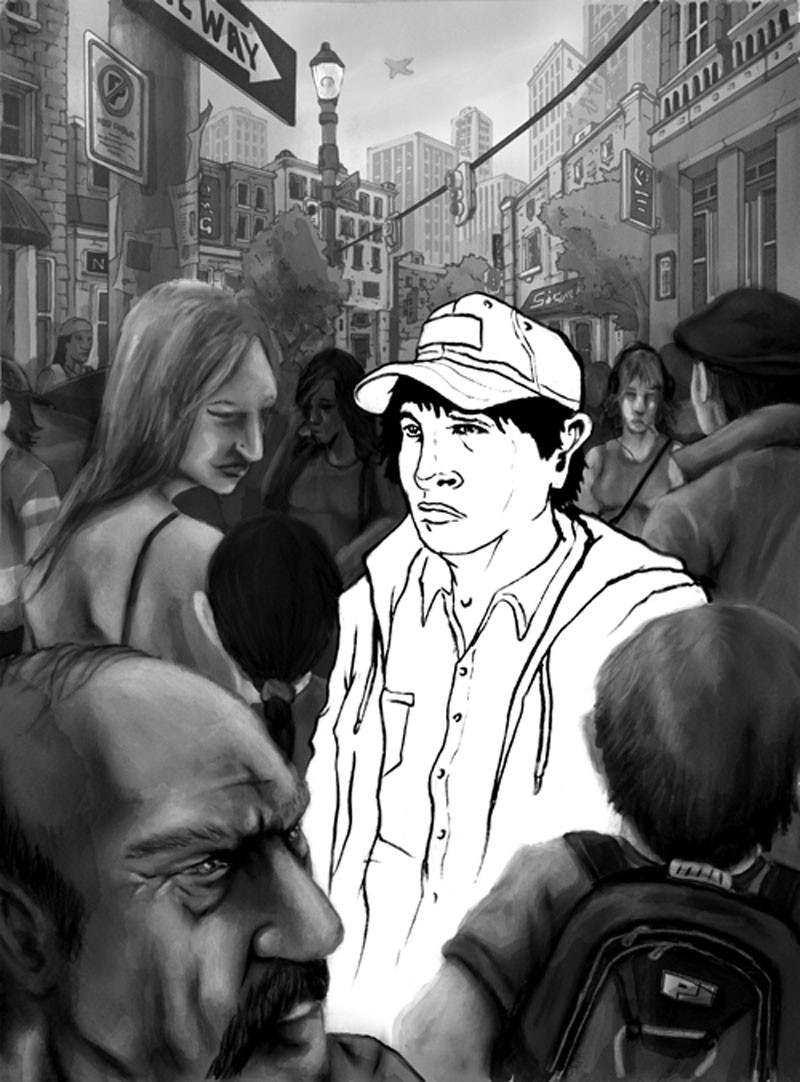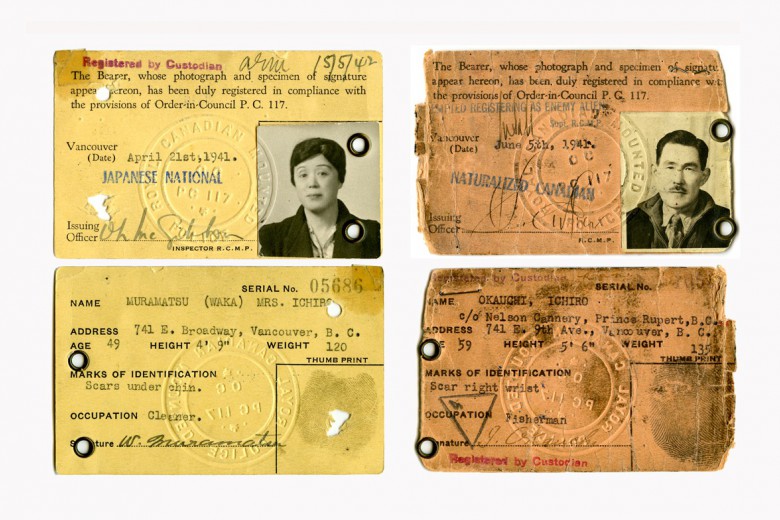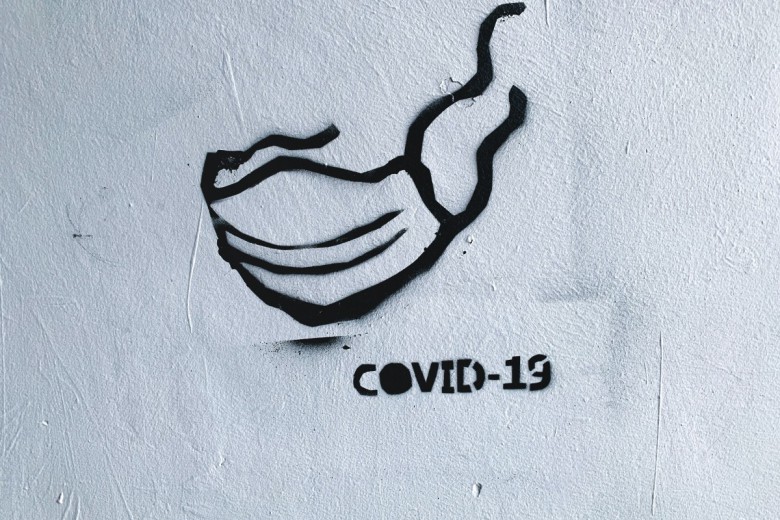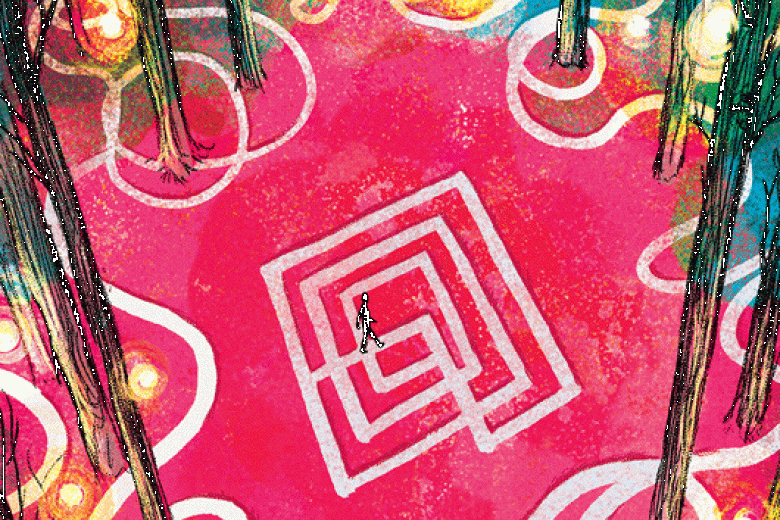
Authman and Zidan Mushtaak are Pakistani nationals who moved to the United States 15 years ago, as children. Because their family was forced to go underground to stay in the country, they’ve lived more than half their lives as undocumented immigrants.
After being deported from the U.S. in 2007, Authman, now 25, moved to Kingston, Ontario on a student visa and is working toward his Canadian citizenship. Zidan, 21, still lives in Pittsburgh, Pennsylvania, with his parents – all three without legal status.
Though they live less than 800 kilometres apart, Authman and Zidan have been separated for the past three years by an impenetrable, invisible line created by Canadian and U.S. immigration laws. The following is a series of emails exchanged between the brothers. For their and their family’s protection, they have chosen pseudonyms.
Authman: I’ve been thinking a lot lately about our first few years in the U.S. Do you remember moving there after Dad lost his job in Saudi Arabia? You were so young.
Zidan: I don’t remember much about coming to the U.S. or the few years after. I’m not sure if I was just too young and indifferent at the time or if Mom kept information from me to protect me. Either way, you could fill books with the information I don’t have about that time in our lives.
Authman: We came and stayed in the U.S. after our travel visas expired because it would have been impossible for our parents to find jobs back in Pakistan – especially without connections or higher education. I don’t think you even knew about the time Dad and I first had to go to Special Registration in Philadelphia in 2002. The U.S. government had just instituted a policy called Special Registration under the Department of Homeland Security, which required all non-citizen males over the age of 16 from 25 countries (all of them except North Korea predominantly Muslim) to register with the Department of Homeland Security.
It was at that point that I was put in deportation proceedings, where the burden of proof was on me to prove that I was not a threat to the security of the United States. For five years, Dad and I had to navigate the immigration/security legal system. Luckily, you were under 16 at that time so you weren’t picked up by the government.
Zidan: I do remember you having to go to Philadelphia every once in a while. Mom would be so worried every time. She’d be on the phone with our lawyers for days before your hearings. Only later did I find out that those hearings were used to determine whether or not you’d be allowed to stay in the U.S.
Authman: When I first found out I had been ordered to be deported, I remember feeling relieved to escape the uncertainty and stress of deportation hearings. Knowing that I had no opportunities in Pakistan, I had applied and been accepted to graduate school in Canada earlier, so I had a study permit to come into Canada.
I didn’t even have time to relax after the deportation order came down. I just had to pack and make sure everything was set to come to Canada. I was just lucky that I was able to finish my undergraduate school work before I had to leave.
Do you remember finding out that I was being deported?
Zidan: Mom told me, but I don’t think the magnitude of the news really hit me until after you left. In some ways, I thought you’d be better off. Or at least that’s what I told myself to keep from thinking about losing you.
To this day, I don’t know how I convinced myself that losing a brother was no big deal. I found out the hard way.
Authman: I just completed my Canadian taxes for this year and it got me thinking about Mom, and how she is always so concerned with having credit cards and filing taxes. Of course, I filed because I need the refund, but the undocumented migrant in me is also trying to be as documented as possible in Canada. Maybe that’s Mom’s motivation too.
How is she? Last time we talked, you mentioned that she was sick but she hasn’t said anything about that lately. I know she keeps her health conditions from me sometimes, especially since she doesn’t have access to medical care. It’s disconcerting. What else don’t I know about her?
Zidan: Yes, Mom is sick. And honestly I can’t pinpoint it to anything except that she’s getting old. It doesn’t help that she’s on her hands and knees all day cleaning people’s bathrooms.
I always wondered about taxes. Ironically, it seems like such a “foreign” idea to me. Every year I hear about people doing them, and all over the Internet I read how it’s important even for undocumented immigrants to turn them in. But I was always so intimidated by them.
Credit cards are a whole different story. I feel such a strong urge to have good credit. I wish I could understand this feeling. I think it has something to do with a desire to be part of something normal.
Authman: I confess I’ve never understood your desire to integrate, to be “normal.” For me, being “normal” is to be part of a social minority – the economically privileged few who consume much of the world’s resources through colonization and exploitation – that does not understand oppression in its various forms. I don’t want to be part of that minority. Instead, I want to be part of a majority that understands oppression, experiences it, and, most importantly, fights against it. I want to be allies with queer people, people of colour, persons with disabilities, indigenous peoples, etc.
Are you scared of deportation?
Zidan: I wouldn’t say scared of deportation, but definitely more against it than you would have been. I’ve definitely dug my roots deeper here than you had, so it’s only natural that I be more inclined to want to stay and try to fit in.
I talked to our lawyer today. The vice-president of my college has been helping me look into some options to normalize our family’s immigration status. She’d indicated that the college could use some of its connections to legalize our family. You can only imagine the giddiness I felt at the prospect of gaining legal status.
But when I talked to our immigration lawyer today, he told me it’s not possible – we’ve just been “illegal” for too long. He told me the best thing to do was to lay low so I’m not noticed and deported like you.
It hurt to have someone tell you “there’s no hope.” What hurts most about being rejected by this country (or, more accurately, its government), is the fact that we were forced to come here in the first place – for opportunities. Did I commit a crime when I came to the U.S.? I was six years old at the time and certainly had no say in the decision. It’s been 15 years now and it’s beginning to look like I have been given a lifetime sentence with no bail. I’m beginning to understand why you fled.
Authman: I’m really sorry to hear that.
I understand your anger toward the American government, but it’s not just a failing of American politics. The modern nation state is inherently racist and xenophobic. If just anyone was allowed to join a nation state, the exclusiveness of a nation state would be lost. The modern nation state exists to regulate borders and control who gets to call themselves a member of that state.
It’s hard not to buy into the legal/illegal discourse, though. I know the border is not a real thing, but the day I went through the immigration line in Pearson and the border officials stamped my papers to legally enter Canada, I felt like I had crossed some real physical line. I had internalized the border. For me, it’s a place where I get nervous and have butterflies in my stomach.
Zidan: I feel like we created the need for borders out of fear. People have a false sense of safety when they feel like there’s some kind of control over who’s coming in and out of our borders.
Then there’s you and I. All I want to do is overcome this artificial border so I can see you. To me, it feels like we’re both on the losing side.
Authman: I actually don’t think we’re fighting a losing battle at all! I believe that, as more people see the cracks in the edifice of the modern nation state, it’ll become more and more possible to live without borders, in small decentralized communities of mutual aid and affinity.
Besides, if I’m able to gain my Canadian citizenship, I’ll be able to sponsor you all to come here. But that may take up to ten years, which feels like forever to me.
I’ve been thinking about the last time I saw Mom. I wish I had been nicer to her. I snapped at her as she was trying to fit the last winter coats into my baggage at the airport. Now that’s the last physical memory she has of me for the next ten or so years. When she tells me how she’s working at all those houses cleaning all day, I feel impotent in not being able to do anything for her. Family relationships are hard but relationships over the phone are even harder.
Zidan: I know. It already feels like a lifetime since you left. I actually don’t remember the day I saw you last. Honestly, I can’t even remember if I was at the airport with you and Mom, or if my mind just blocked out that day. Either way, it bothers me.
Authman: You know, now that you mention it, I don’t remember when I last saw you either! I half-remember seeing you a day or two before I left, but I can’t really place our meeting. That’s a little sad.
When I read that part of your email, I thought I’d like to give you a hug. Unfortunately, I can’t, but maybe when I see you next? I imagine that when we see each other next, we’ll be at an airport, probably at Pearson, many years from now. I imagine I’ll still want to give you a hug before anything else.
Zidan: It’s comforting to know I’ll see you someday. To me it almost seems like a race. We’re both fighting to see who can sponsor the other one to come into the country. Who knows, maybe I’ll be the one bringing you into the U.S. to come live with us. But wherever we are, I can’t wait to see Mom’s face at that moment. We’ve all lost so much, but she’s the one who’s given up the most.



_780_520_90_s_c1.jpg)


